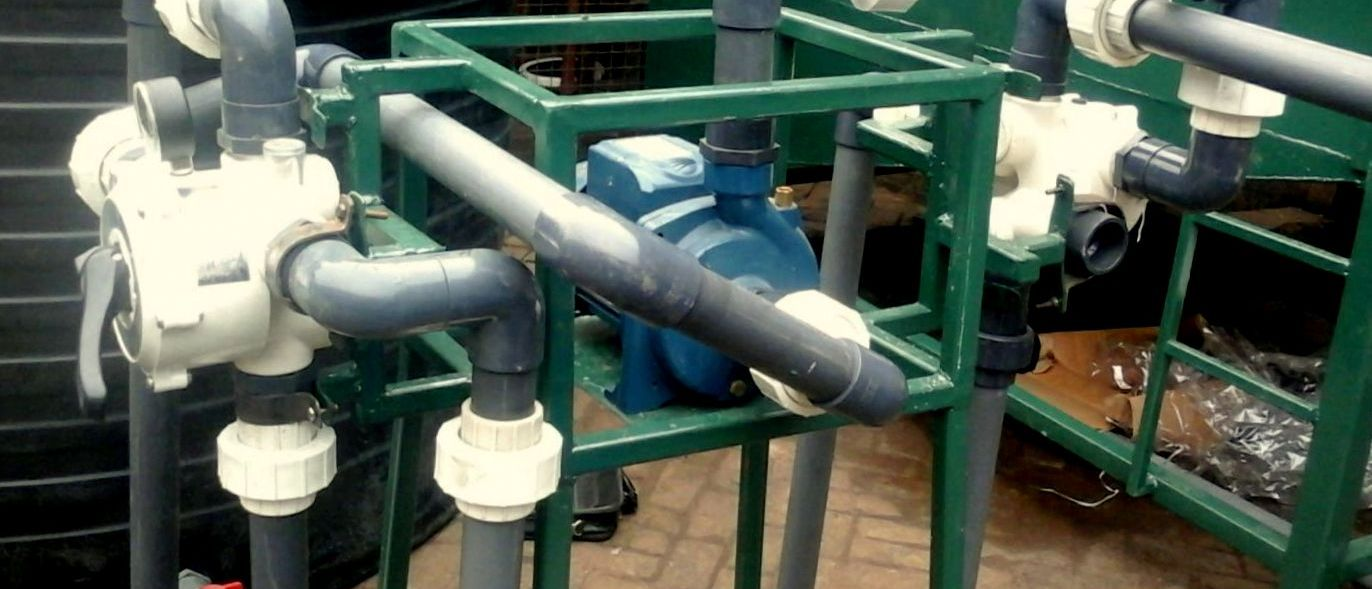The best possible qualified professional essay producing care promises special papers of top quality for affordable total price. Find correct article author to obtain essay put together in certain several hours
Kanku Kenya offers various types of filters as standalone components. These include:
- Sand/anthracite filters
- Activated carbon filters
- Iron removal filters
- Arsenic removal Systems
- Fluoride filtration system
These systems comprise of pressure vessels and are suitable for filtration of all types of water and wastewater. Media content in the filters vary depending upon the application area.
All filters are chosen and sized depending on the type of water, suspended solids concentration, oil and grease, COD/ BOD5, iron content and flowrate to obtain clarified water.
Iron removal plants are designed using different filtration media, depending on the iron & manganese concentration, oxygen level, CO2 content and hardness of water.
Ultraviolet (UV) Disinfection
Meeting stringent industry regulations is becoming more and more necessary. UV treatment is successful in achieving disinfection of water particularly where resistant bacteria are difficult to eliminate.
Complete UV systems having proven technology from Kanku Kenya are available for the Food & Beverage Production, Potable Water, Chemical, Pharmaceutical, Soft Drinks and Swimming & Leisure Industries including Wastewater Treatment Industries such as Public Water Supply etc.
Kanku Kenya offers Specialised Ultraviolet Systems, providing clients an individually tailored service to solve the most complex of disinfection challenges.
Water Ozonators
Ozone is a colourless gas with a mild odour detectable at very low concentrations. It is approximately 3,000 times more powerful as an oxidising agent as compared to chlorine. This powerful oxidising property enables ozone to be a highly effective disinfectant, deodoriser, decolouriser and oxidiser.
Ozone reduces itself to oxygen gas leaving behind a nascent oxygen atom. This oxygen atom is the key oxidising agent and can oxidise the cellular structure of micro-organisms thereby rupturing them instantly unlike the slower effects of chemical disinfectants. It can also oxidise chemical compounds into their non-harmful components.
Ozone application for water treatment works in a similar fashion. The stray oxygen atom causes oxidation of harmful compounds such as salts, colloids, dissolved ions whereby they lose electrons and convert into their individual components.
Basic Mechanism of Water Ozonator treatment includes:
- Oxygen concentration
- Ozone generation
- Effluent recirculation stream
- Mixing at venturi extractor
- Effluent converted to clean water over time
Applicable Industries for the Water Ozonator:
- Agricultural Industry – Pretreatment of irrigation water for farming, Decolourisation of process water from industry, Sterilization of water for Abattoirs where process meat requires cleansing
- Commercial Applications – Sterilization of process water from commercial establishments such as restaurants that need clean water for cooking etc.
- Residential Applications – Sterilization of water for drinking purposes in residential establishments
Advantages of Water Ozonation Technology:
- Chemical Free
- Simple operation
- No moving parts
- Low maintenance
- Low operation cost
- Highly Effective Disinfectant
- High oxidation properties
- Reduced health risks
Air Ozonator
Ozone generator produces the ozone gas in desired dilute concertation. An air blower mixes this ozone gas into an air stream and releases it into targeted environments destroying the pollutants in the air thus purifying and disinfecting the air environment.
Depending on the requirement, a timer is set so as to control the ozonation cycle. In addition to this, a Concentration dial is also provided which allows for the dosage of ozone to be controlled.
Depending on the severity of pollution in the immediate surroundings, ozone concentration can be set accordingly.
Applicable Industries for the Air Ozonator:
- Residential – Homes and living areas, kitchens, Toilets and washrooms, Wine cellars, Garages
- Hospitals – Patient rooms, Wards, Emergency rooms, Surgical theatres, Nursing homes
- Hospitality Industry – Hotel rooms, Waiting lobby, Restaurants, Kitchens, Toilets and washrooms
- Pharmaceutical Industry – Biochemical &Microbiology laboratories, Medical packaging facilities
- Manufacturing and Processing Industry – Offices and meeting rooms, Food processing plants, Meat processing plants
- Agricultural Industry – Milk & Dairy plants, Chicken farms, Egg incubation facilities, Abattoirs, Fisheries
- Commercial Facilities – Shopping malls, Restaurants, Theatres & Cinemas, Gymnasiums
- Retail Food Industry – Vegetable racks, Poultry and Meat shelves
Advantages of Air Ozonation Technology:
- Chemical Free
- Simple operation
- No moving parts
- Low maintenance
- Low operation cost
- Highly Effective Disinfectant
- High oxidation properties
- Reduced health risks

